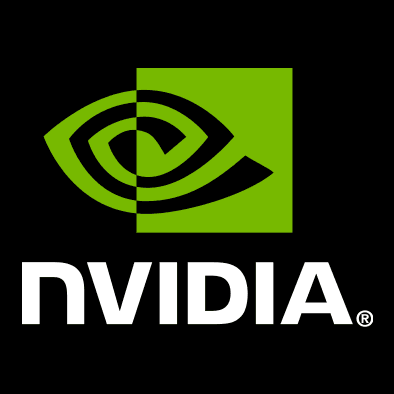Nvidia's Strategic Challenge: AI Chip Leader Faces Setback Amid U.S.-China Trade Pressures
Nvidia, a global leader in AI chip technology, is grappling with new U.S. export restrictions that affect its custom-designed H20 chip for China. With the revised rules halting shipments without a special license, Nvidia could see a $5.5 billion hit to revenue. This development highlights the growing geopolitical tensions surrounding advanced technology and their impact on semiconductor firms.

Nvidia, a dominant force in the artificial intelligence chip market, is now facing significant pressure as fresh U.S. export controls take effect. These updated restrictions target AI chips developed specifically for China, including Nvidia’s H20 model—a chip the company had hoped would allow it to retain access to the lucrative Chinese market while staying compliant with prior U.S. policies.
However, recent regulatory changes mean that even the H20 now requires a special license for export to China. This unexpected development is expected to result in a substantial financial blow, with Nvidia estimating a revenue loss of approximately $5.5 billion.
The H20 chip, which runs on Nvidia’s advanced Hopper microarchitecture, was designed with China’s regulatory landscape in mind. The company had attempted to thread the needle between U.S. government concerns and Chinese demand for high-performance computing power. Now, that strategy appears to be compromised, as the U.S. tightens restrictions on AI chip exports amid broader tensions with Beijing.
Also Read: OpenAI Introduces Codex CLI: Revolutionary Local AI Coding Assistant for Developers
In a bid to manage the fallout and potentially preserve future business ties, Nvidia CEO Jensen Huang recently visited China and met with key officials, including Ren Hongbin of the China Council for the Promotion of International Trade. His visit underscores Nvidia’s high stakes in the Chinese market and its ongoing efforts to maintain business relationships in a rapidly shifting geopolitical landscape.
The announcement of the export ban has already sent shockwaves through financial markets. Nvidia shares fell nearly 7% following the news, while other major chipmakers like AMD also experienced notable declines. The broader semiconductor market, reflected in indices such as the iShares Semiconductor ETF, took a hit as investors reevaluated the risks tied to global tech regulation.
As U.S.-China trade relations remain tense, tech companies like Nvidia find themselves navigating an increasingly complex regulatory maze. This situation not only threatens immediate financial returns but also casts uncertainty over future innovation and international collaboration in the AI space.
You may also like

Modi-Musk Talks Spark Excitement Over India-U.S. Tech Collaboration
Summary
Read Full
open_in_newPrime Minister Narendra Modi and Elon Musk recently held discussions focused on future collaboration in technology and innovation. Their conversation explored opportunities across electric vehicles, satellite internet, and space technology. Musk also confirmed plans to visit India later this year, signaling growing alignment between India and global tech giants.

Why the U.S. Bond Market is Gaining Global Attention in 2025
Summary
Read Full
open_in_newThe U.S. bond market is drawing significant attention from investors and analysts worldwide in 2025. With higher yields, economic uncertainties, and the Federal Reserve’s cautious stance on interest rates, bonds are being seen as a stable and strategic investment option. Here's why global interest in U.S. Treasuries is on the rise.

Netflix Surpasses Expectations with Strong Q1 2025 Earnings and Confident Revenue Forecast
Summary
Read Full
open_in_newNetflix delivered a powerful financial performance in the first quarter of 2025, surpassing market expectations with a 13% revenue increase and a significant boost in net income. Backed by strong subscriber activity, advertising revenue, and recent price adjustments, the streaming giant remains optimistic about its future, aiming to double its revenue by 2030 and significantly expand its ad business.

California Attorney General Refuses to Back Elon Musk’s Legal Battle Against OpenAI
Summary
Read Full
open_in_newCalifornia's Attorney General has declined to support Elon Musk's lawsuit challenging OpenAI’s shift toward a for-profit structure. Musk claims this move violates the company's original nonprofit mission, while OpenAI insists it's necessary for securing future investment. The legal standoff continues without state backing.

OpenAI Introduces Codex CLI: Revolutionary Local AI Coding Assistant for Developers
Summary
Read Full
open_in_newOpenAI has unveiled Codex CLI, a powerful AI-powered coding tool that operates directly in the terminal. Designed for developers, this local agent can write, edit, and execute commands without needing to send sensitive code to the cloud—combining privacy with productivity.

Trent Shares Surge 6% Amid Sensex and Nifty Slump – Here’s Why Investors Are Bullish
Summary
Read Full
open_in_newDespite a sharp decline in the Indian stock market, with the Sensex and Nifty witnessing significant drops, Trent Ltd. shares soared by 6%, making it the top performer in the Nifty 50 index. This surge comes amid heightened market volatility and investor concerns over global economic uncertainties. Trent’s impressive rally highlights strong investor confidence in its retail expansion and financial stability.

Summary
Read Full
open_in_newOpenAI has successfully raised $40 billion in a landmark funding round, pushing its valuation to an impressive $300 billion. With investments from SoftBank, Microsoft, and other major players, this funding aims to accelerate AI research, expand computing infrastructure, and enhance user tools for ChatGPT’s growing audience. The investment solidifies OpenAI’s dominance in the artificial intelligence industry and fuels its ambitions to develop next-generation AI systems.
Post a comment
Comments
Most Popular






























































































































